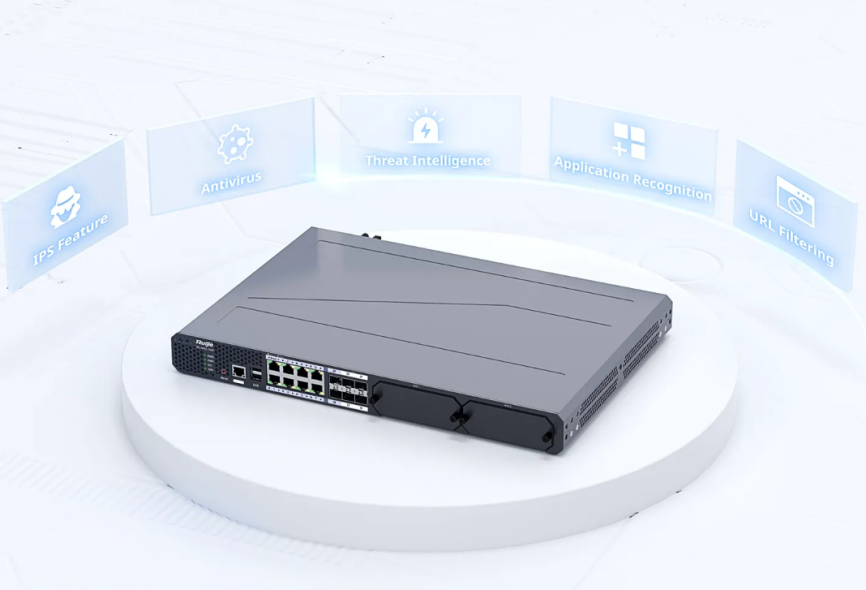Network security refers to a series of measures and practices that protect networks and their connected devices from malicious attacks, unauthorized access, damage, or other forms of cybercrime. Network security ensures the confidentiality, integrity, and availability of network data, which is key to guaranteeing the overall secure use of networks.

What Are the Methods to Ensure Network Security?
Network security is a broad topic, and many actions can be taken to achieve comprehensive protection:
Data Protection: Prevent sensitive information from being leaked and ensure the safety of data during transmission and storage.
Access Control: Restrict access to network resources, allowing only authorized users to access sensitive data and systems.
Intrusion Detection and Defense: Monitor and defend against potential attacks, such as hacking attempts and malware.
Encryption: Use encryption technology to protect data transmission, preventing data from being intercepted and interpreted during transfer.
Firewall: Deploy firewalls to control incoming and outgoing network traffic, blocking unauthorized access.
Security Protocols: Implement secure communication protocols, such as SSL/TLS, to protect network communications.
Endpoint Security: Protect each device (endpoint) in the network, including personal computers, smartphones, and servers.
Security Auditing and Monitoring: Conduct regular security audits and monitor network activities to detect and respond to security incidents promptly.
Disaster Recovery and Data Backup: Recovery and backup measures can reduce the risks of data loss and business interruptions.
User Education: Provide security awareness training to users, enhancing their ability to identify and prevent network threats.
Key Technical Tools for Achieving Network Security
Among various measures, the firewall configuration is one of the key technologies and tools that users can configure themselves. As a fundamental component of network security strategies, a firewall monitors and controls network traffic and assists in achieving network security through the following methods:
Access Control:
A firewall controls network access by defining a set of rules to allow or deny network traffic based on IP addresses, port numbers, and protocol types.
Intrusion Prevention:
A firewall can detect and block potential malicious traffic, such as hacking attempts and intrusions, reducing network security risks.
Packet Filtering:
A firewall filters packets at the network layer, ensuring that only packets complying with security policies are allowed through.
Stateful Monitoring:
Modern firewall devices typically have stateful monitoring capabilities, allowing them to track the state of network connections, providing more granular control and higher security.
Application Layer Filtering:
Some advanced firewall tools can filter at the application layer, inspecting packet content such as URLs and file types to prevent malware and attacks.
VPN Support:
A firewall is often combined with Virtual Private Network (VPN) technology to provide a secure, encrypted channel for remote access.
Intrusion Detection System (IDS) and Intrusion Prevention System (IPS):
A firewall can be integrated with IDS and IPS to provide more comprehensive network security protection.
Logging and Reporting:
A firewall logs network activities, providing essential information for security audits and incident response.
Multi-Layer Defense Strategy:
A firewall is also part of a multi-layer defense strategy, working in conjunction with other security measures such as antivirus software and Security Information and Event Management (SIEM) systems to provide comprehensive network security.
As the frontline guardian of network security, a firewall protects networks from threats by controlling network traffic and blocking malicious access. A network security system is incomplete without a firewall, and a robust network security strategy relies on effective firewall configuration and management.
When choosing a firewall, we should consider its performance, security, reliability, ease of use, scalability, compliance, integration capabilities, logging features, technical support, cost-effectiveness, and update capabilities. Ensure that it meets the organization's security needs and can integrate with existing security architecture and cloud services. Give priority to products that offer comprehensive protection, easy management, and high cost-effectiveness. Representative products include Ruijie Reyee's 1600-Z5100-S, 1600-Z3200-S, and similar devices, which offer flexible scalability, high security performance, and high throughput. These devices can be easily deployed with simple configuration, support cloud management, and are well-suited for streamlined business models. They can be deployed easily in data centers and network gateways for schools, hospitals, and government agencies, helping to comprehensively enhance network security defense capabilities with intelligent and hassle-free management.

RG-WALL 1600-Z5100-S, Next-Generation Z Series Firewall
With technological advancements, especially the widespread adoption of 5G, the Internet of Things (IoT), and cloud computing, artificial intelligence and machine learning will further influence network security monitoring and response. The trend of remote work will also increase users' demand for endpoint security and zero-trust networks. Network security protection will face more challenges, requiring more advanced technologies and widespread cybersecurity education to address them. In the future, customized integrated solutions tailored to users' specific needs will become more popular. Continuous innovation in this field is necessary to adapt to the new challenges of the digital era.
Featured Articles
- Networking Tools for Retail Stores: The Core Value of Cloud-Managed APs












